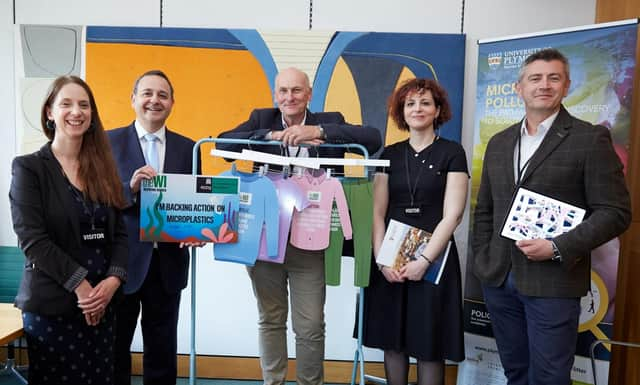South Leicestershire MP ramps up efforts to crack down on dangerous microplastics polluting the environment


South Leicestershire MP Alberto Costa is ramping up efforts to crack down on dangerous microplastics polluting the environment.
Mr Costa has staged an event as Chair of the All-Party Parliamentary Group on Microplastics in Parliament alongside the National Federation of Women’s Institutes on Textiles and the Environment.
Advertisement
Hide AdAdvertisement
Hide AdHe acted as microplastics have been found in new snow in Antarctica for the first time, a new study revealed today (Wednesday).
Experts fear these tiny particles pose a threat to the frozen continent's precious ecosystems and will impact on the climate.
Mr Costa said his event was also attended by Plymouth University academics and Xeros Technology Group, which has designed a washing machine filter solution.
The new filter vitally traps over 90 per cent of microfibre plastics from the laundry cycle.
Advertisement
Hide AdAdvertisement
Hide AdAll textiles shed microfibres, which are 5mm in size or smaller, when they are either worn or laundered.
And all garments shed fibres, whether they are made from natural or synthetic fibres.
Mr Costa said: “I will continue to raise this important issue with our colleagues in Government.
“I hope a solution such as adding microfibre filters in all new domestic and commercial washing machines is enacted soon.”
Advertisement
Hide AdAdvertisement
Hide AdMicroplastic fibres are persistent and avoidable pollutants.
They are pouring into human food chains and have been discovered in human lungs and blood.
Over a third of all microplastic in our rivers and oceans are released from our clothing.